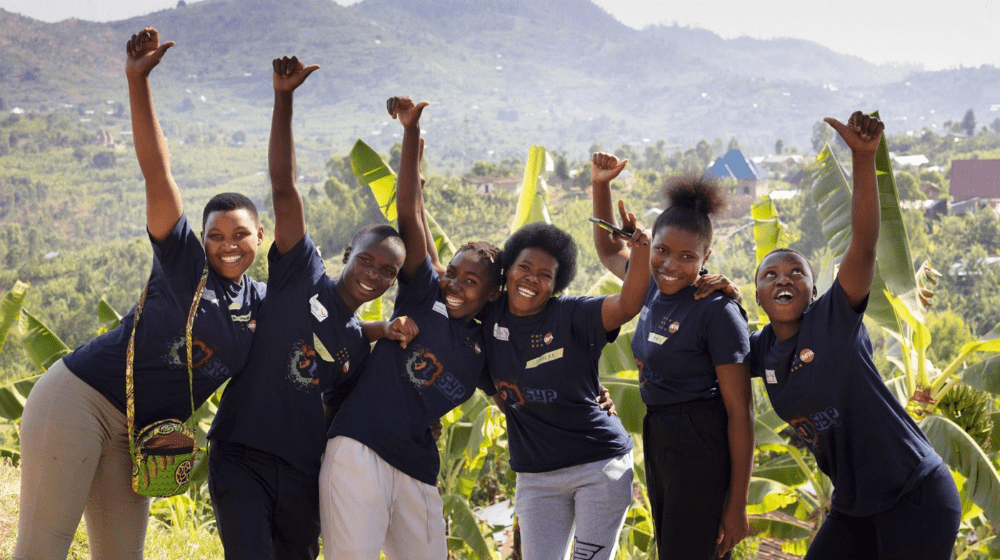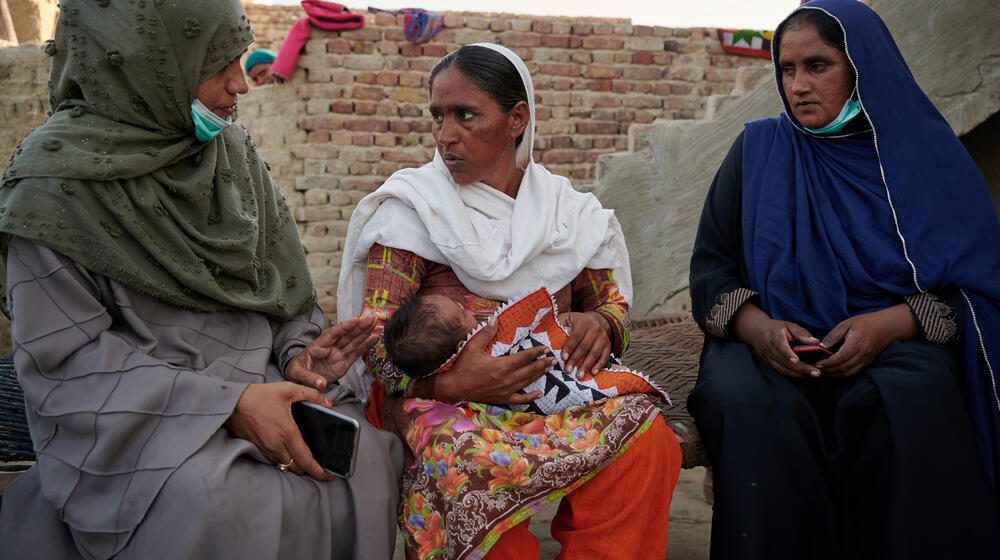
Uprooted: Three displaced survivors of gender-based violence share their personal journeys
Aisha* was 16 years old when she found herself alone, in the middle of war. She had been living with her mother in Sudan’s capital city of Khartoum, but when her mother died of kidney failure in the ...
Uprooted: Three displaced survivors of gender-based violence share their personal journeys

Aisha* was 16 years old when she found herself alone, in the middle of war.
She had been living with her mother in Sudan’s capital city of Khartoum, but when her mother died of kidney failure in the spring of 2023, the teenager was left on her own. At the same time, civil war was erupting around her. “In the beginning, my neighbours used to help me a lot, bringing me food,” she said. “But as the fighting in our area escalated, people began to leave.” Eventually, she had no choice but to venture out from her home to find food and supplies.
The fighters took notice. One evening, two armed men knocked on her front door. “They asked me if there were any men in the house,” she recalled. “I was so scared that I said no.” The men left, and she quickly locked the door. But later that night, they returned.
“Around 9 p.m., I heard noises inside the house,” she said. Terrified, she hid under her bed. “Suddenly two armed men entered my room. They pointed their guns at my head and hit me with their weapons. One of them pressed his gun against my head while the other began taking off my clothes. Then, he raped me while the other one watched. Afterward, they swapped places.”
That was only the beginning of her unthinkable ordeal. The next day, the men returned again, this time with two more men. “They stayed with me for four nights, doing the same things to me repeatedly,” Aisha said.
Tragically, her experience is not uncommon. Around the world, intensifying conflicts and climate crises are driving record levels of displacement and instability, exposing women and girls to soaring risks of gender-based violence. In 2023, there was a 50 per cent increase in rape and sexual violence committed in war compared with the previous year.
For women and girls forced from their homes – on journeys long or short, and in the places where they seek shelter – the increased threat of violence includes sexual and physical assault, rape, forced and child marriage, psychological abuse and other forms of exploitation. A staggering 70 per cent of women are subjected to gender-based violence in crisis zones.
For this year’s 16 Days of Activism Against Gender-Based Violence, UNFPA, the United Nations sexual and reproductive agency, is drawing attention to the heightened risks of gender-based violence faced by displaced women and girls across the world. Here, three brave survivors share their stories of trauma, resilience and hope.
A courageous journey
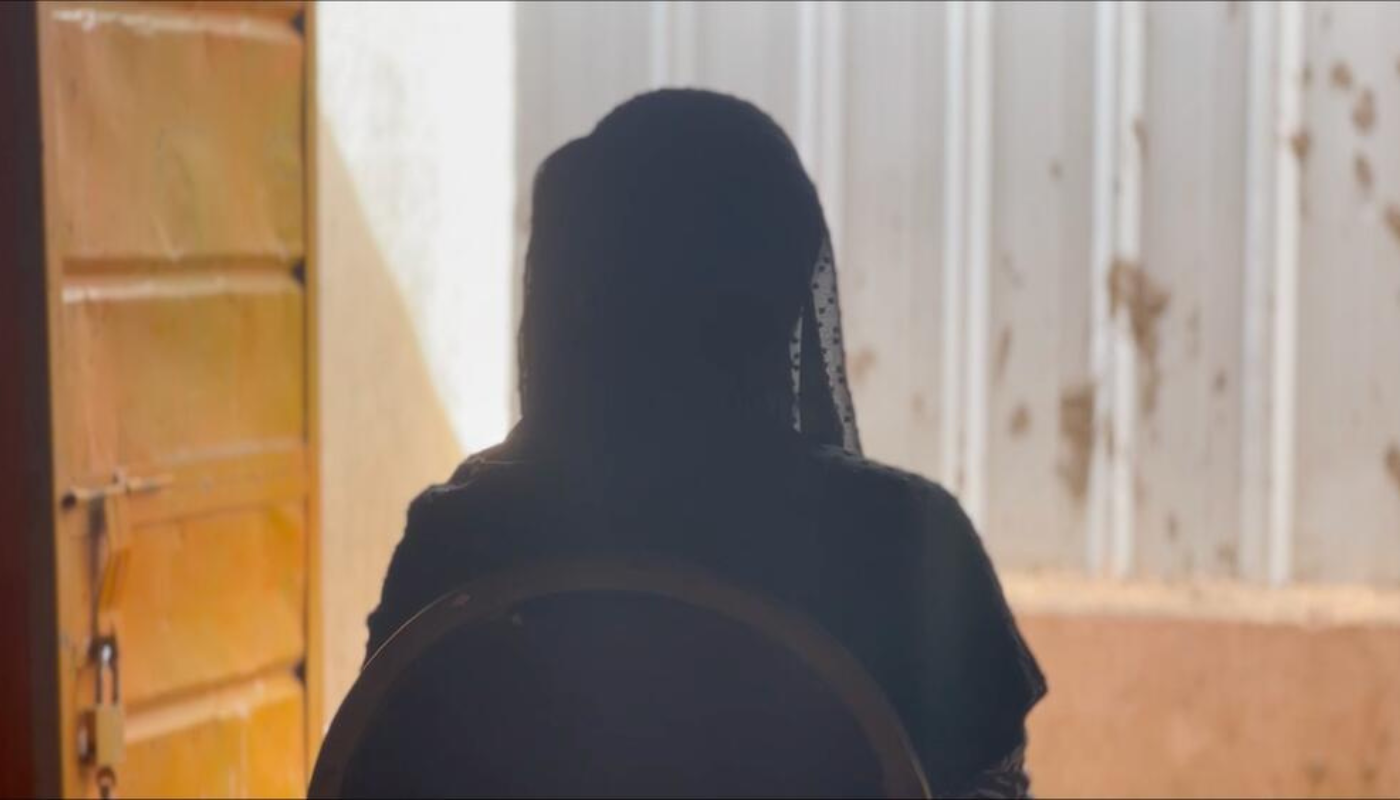
For Aisha, her nightmare didn’t end when the fighters left her home in Khartoum. Left to fend for herself after the horrific abuse, she mustered incredible strength and courage, determined to survive.
First she fled to the home of a friend who was planning to leave the city with her family. “I didn't tell her what had happened to me, but I begged her to take me with them. Her mother agreed,” she said. “We went to Kassala together.”
There, Aisha soon faced another blow: She was pregnant.
“When I found out, the family I was staying with asked me to leave, saying I was too big of a responsibility,” she told UNFPA. “I didn’t know where to go. I moved from place to place. I tried staying in shelters, but they wouldn’t allow me because of my situation. Even families refused to host me.”
Sadly, the stigma around sexual violence often isolates survivors. And in times of conflict and crisis, when the needs of women and girls are highest, access to services and support shrinks.
When she reached a point of utter despair, a family told her about a facility supported by UNFPA in Kassala that could provide her with the care she sought. “When I joined the centre, they provided me with help, both psychological and medical,” she said. “They also referred me to a hospital to check on my condition and provided me with some financial assistance.”
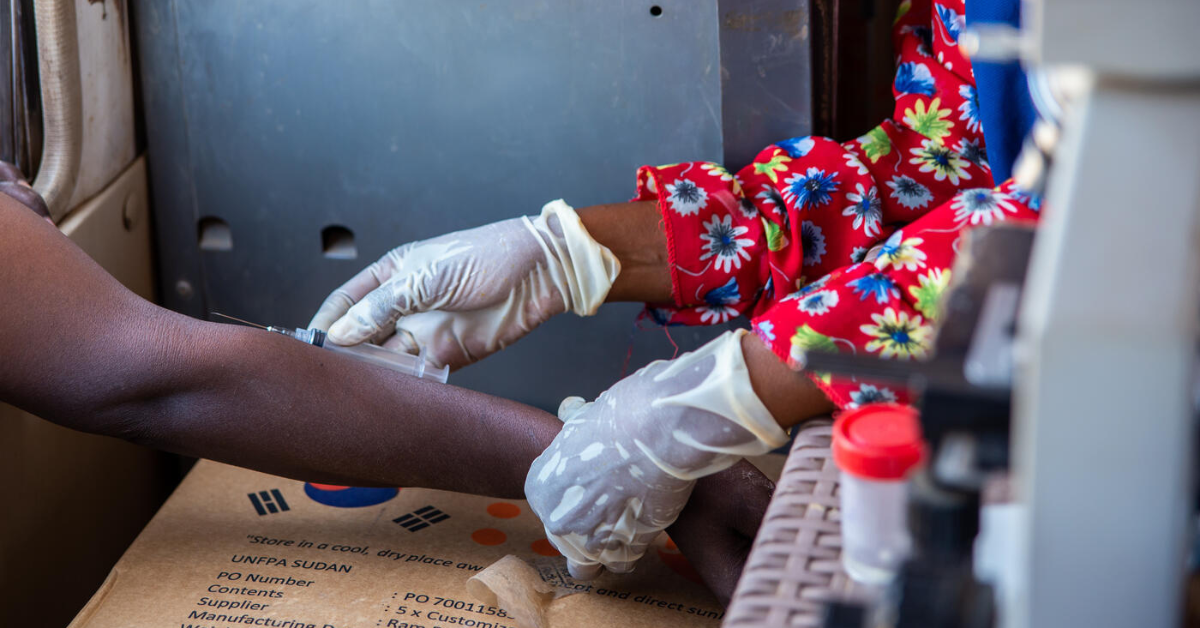
Still, everything about her future remains uncertain, including where she will live with her child.
Displacement camps and temporary accommodations for refugees can expose vulnerable women and girls to a myriad of risks. At these sites, living conditions are precarious: Doors have no locks, latrines are not separated by gender, lighting at night is inadequate. Sexual exploitation and abuse increase.
The situation in Sudan is especially dire, with conflict-related sexual violence used as a terror tactic by armed groups. The country saw a 288 per cent increase in the number of survivors seeking gender-based violence services during the first seven months of this year, according to the United Nations Office for the Coordination of Humanitarian Affairs. The real numbers are presumably much higher, as gender-based violence is a vastly under-reported and under-investigated crime, perpetuated by a cycle of impunity for abusers.
Said Aisha, “I have no idea what the future holds.”
A quest for safety
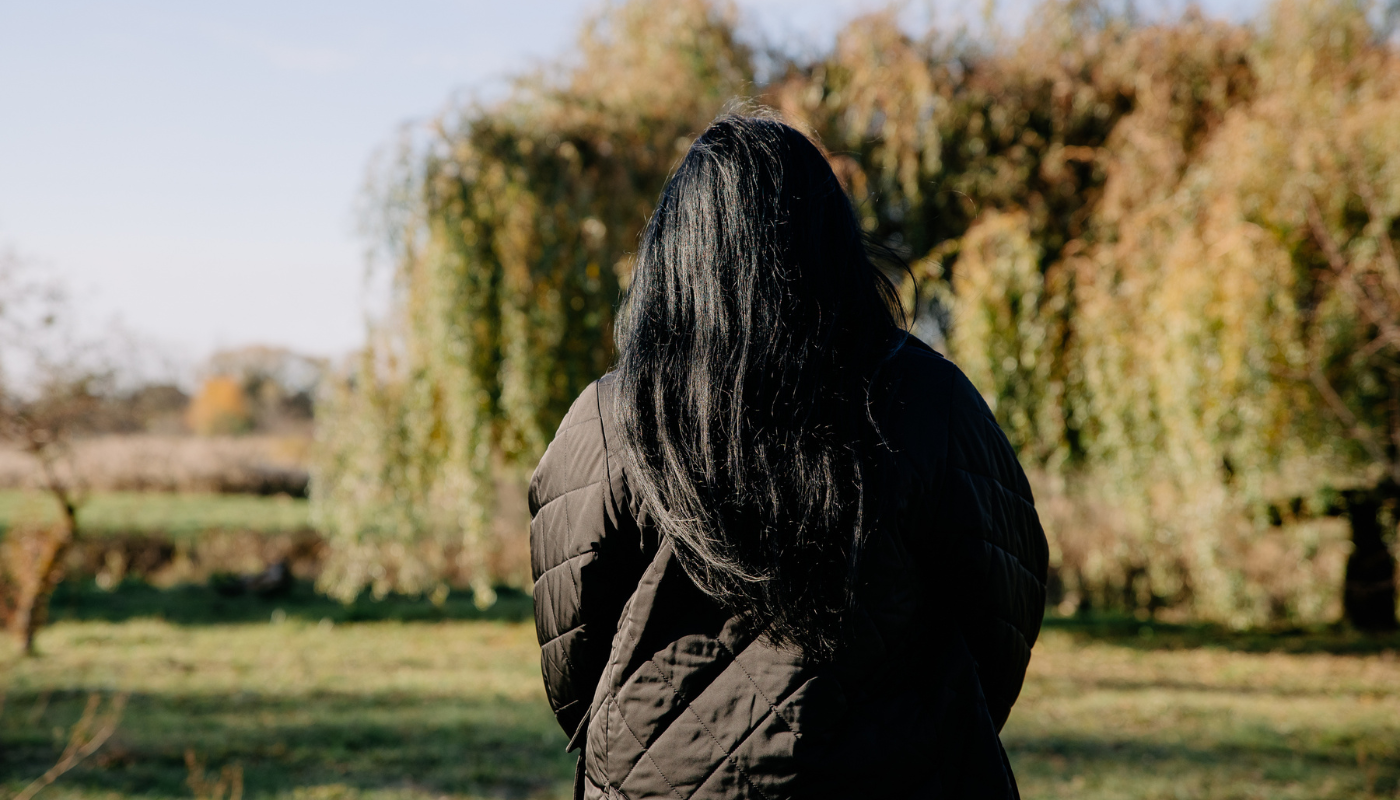
Maria* was a happy 21-year-old living in the Kharkiv region of Ukraine when she began a romance that she describes as a “fairy tale.”
At the time, she was enjoying a vibrant social life, having just finished her studies and started a new job. There, she met a man who made her feel special. “One day he surprised me,” she said. She often rushed to work without breakfast, and he noticed: “He approached me, saying, ‘Go to that café nearby – they’re waiting for you.’ When I arrived, the waiter had set a beautiful table just for me, saying someone had left this meal for me. He made sweet gestures like this for a long time – a long, lovely period.”
The two married – “a gorgeous wedding,” Maria recalled – and began thinking about starting a family. But when their first child was born, her husband grew highly critical. “I changed physically after childbirth. Now, I understand that’s normal, but at that time, I saw it as a problem. I had gained some weight and was constantly hearing remarks from him about it – how I had become ‘fat’ and ‘ugly.’ His criticisms went very deep, even affecting our intimacy. He kept pointing out that it was my fault.”
As her husband grew more emotionally abusive, questioning who could possibly love her, Maria blamed herself. “I was so hard on myself, feeling like I wasn’t a good mother or wife. I couldn’t lose the weight I’d gained. Then my milk started drying up, and the baby became anxious because she wasn’t getting enough to eat. I was living in this constant chaos and stress.”
Things turned physically violent after she became pregnant again and miscarried. “He accused me of purposely having an abortion because I didn’t want another child,” Maria told UNFPA. One night her husband came home drunk, looking for a fight. When she said she didn’t want to talk to him, he hit her so hard that she lost hearing in one ear until the morning.
Maria endured years of abuse, trying time and again to fix the relationship while also expanding the family – with no emotional support from her parents, who blamed her for her problems – before she found the strength to leave. She initiated a divorce, and broke free.
Then came Russia’s full-scale invasion of Ukraine in February of 2022.
Panicked, Maria felt she had no choice but to turn to her former husband for help. “We lived near the front line. I was extremely scared,” she said. “At that moment, I just wanted to get the kids to a safe place.”
Unfortunately, her need to flee forced her to invite an abuser back into her life.
Her ex-husband accompanied the family to a safer area, and soon the abuse returned with a vengeance, as his drinking escalated. Now, as a displaced mother, Maria was even more vulnerable, with no home, no job, no support system.
“I didn’t know how to move forward, where to go,” Maria said. “Going back home was impossible because, essentially, there was no home anymore.”
The war in Ukraine has taken a heavy toll on millions of women and girls, with displacement and destruction of infrastructure leaving essential mental and physical health services out of reach for many.
Maria began asking other women what she should do, and one pointed her to a trusted local police officer. “I called him, explained the situation, and he said, ‘I’ll come over and talk to him.’ That was a turning point. As soon as my ex found out the officer was coming, he disappeared.”
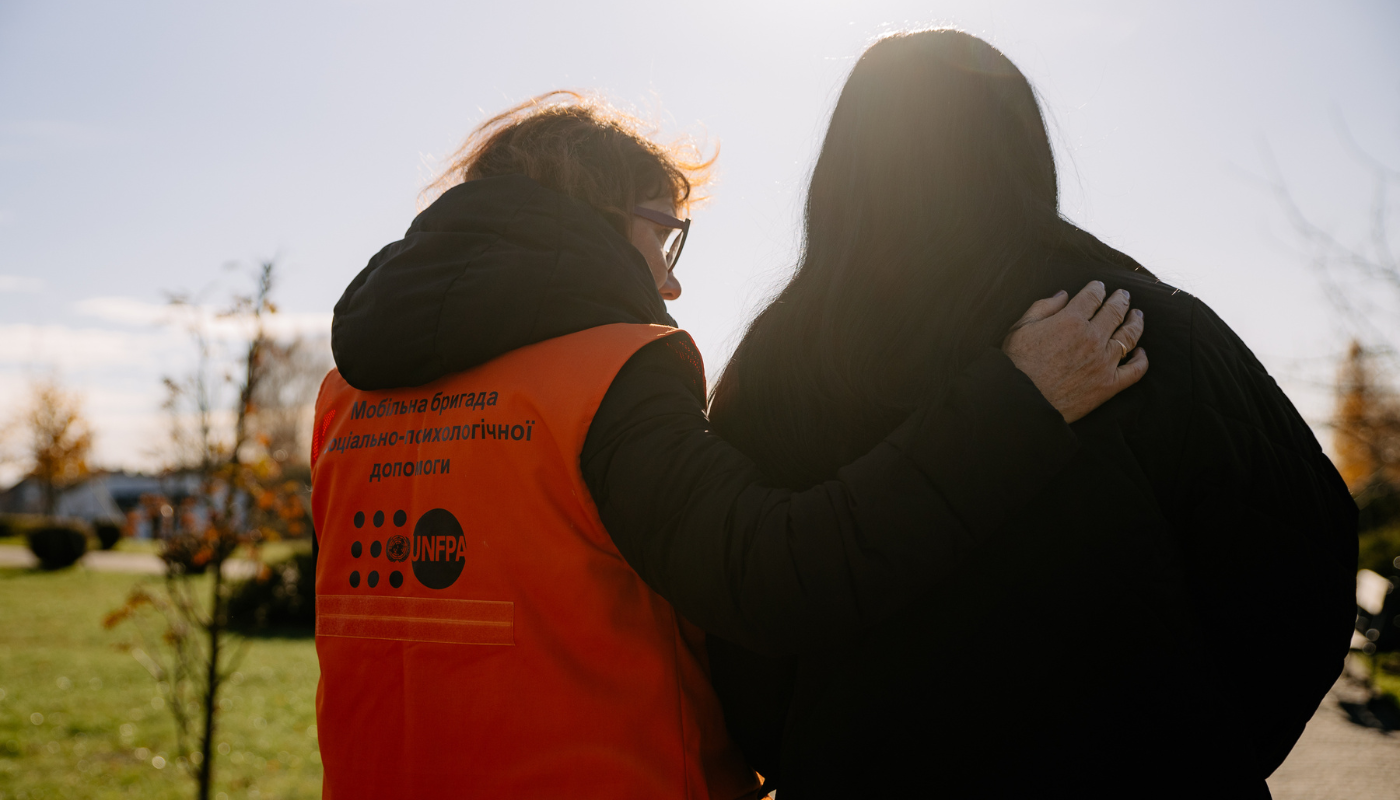
After her ex-husband left, Maria learned about a UNFPA mobile team offering psychosocial support. “These women, who not only supported me but helped me understand things, were able to get me through it. I was amazed, just truly amazed, by them. I realized that I wasn’t alone, that someone actually cared about my problem. They made it clear that none of this was my fault,” she said. “They gave such tremendous support, not just for me, but for my children as well.”
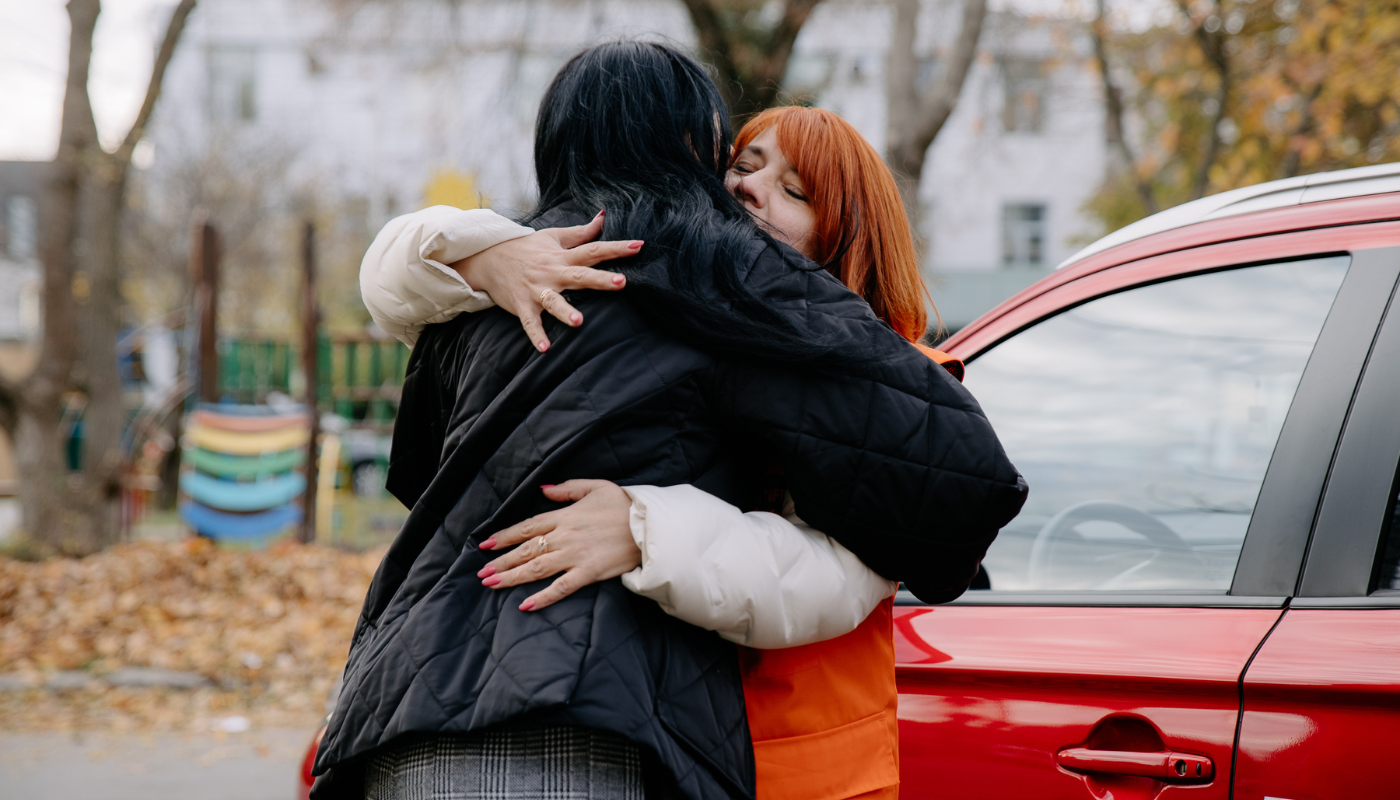
Now on a road to healing, Maria said she is profoundly grateful to the people who listened, and cared. “They simply looked me in the eyes, extended a hand and said, ‘Hold on, hold my hand, and I’ll help you.’”
A new future
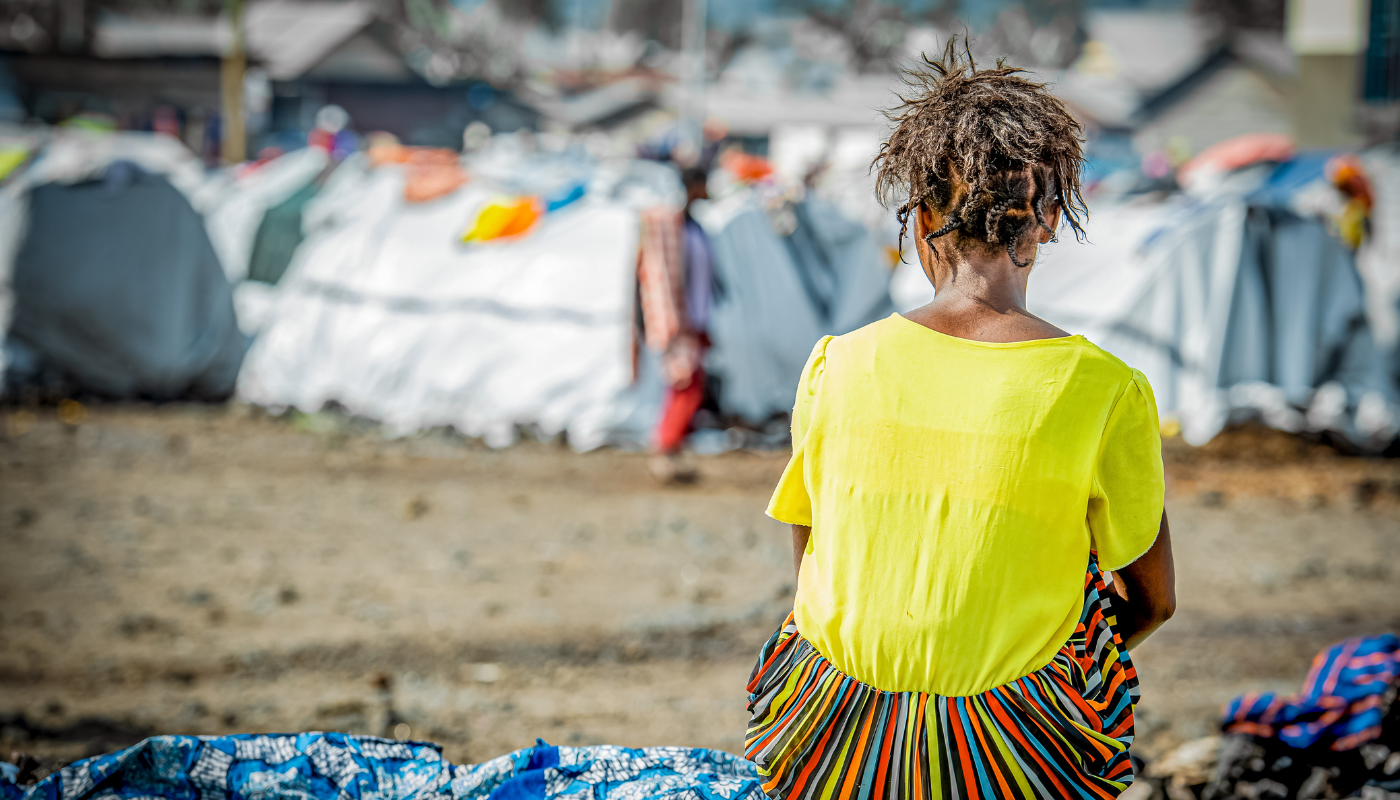
When a bomb exploded in the middle of the night near her home in eastern Democratic Republic of the Congo in early 2023, 16-year-old Furah* ran for her life.
“Everyone in the family went their own way and I went mine,” she said, recalling how she became separated from her relatives amid the chaos in the conflict-ridden province of North Kivu. “As I fled, I came across a few other girls I didn’t know.” Together, the girls arrived in a village called Petit Masisi. But they found no safety there. Armed fighters threw the girls into a pit and raped them.
“Thank God, we took advantage of a moment’s distraction on their part after the crime to run away,” Furah said. “After walking a long way to Sake, we came across a man who gave us a lift.”
The good samaritan brought the girls to the Bulengo camp for displaced people in Goma. There, Furah found shelter in a tent that she shared with other displaced women and girls.
“A few weeks later, I started to feel changes inside me, particularly pains,” she said. The women she lived with advised her to go to a mobile health clinic. “They weren’t aware that I’d been raped,” she recalled. “At the clinic, the nurse did a test and confirmed that I was pregnant.”
Furah felt lost. Still reeling from the trauma of rape and displacement, now she had to worry about carrying a child and giving birth. “I didn’t know how to take care of the pregnancy, or myself, for that matter.”
At the UNFPA-supported clinic, Furah received crucial care, eventually delivering her daughter safely in the fall of 2023.
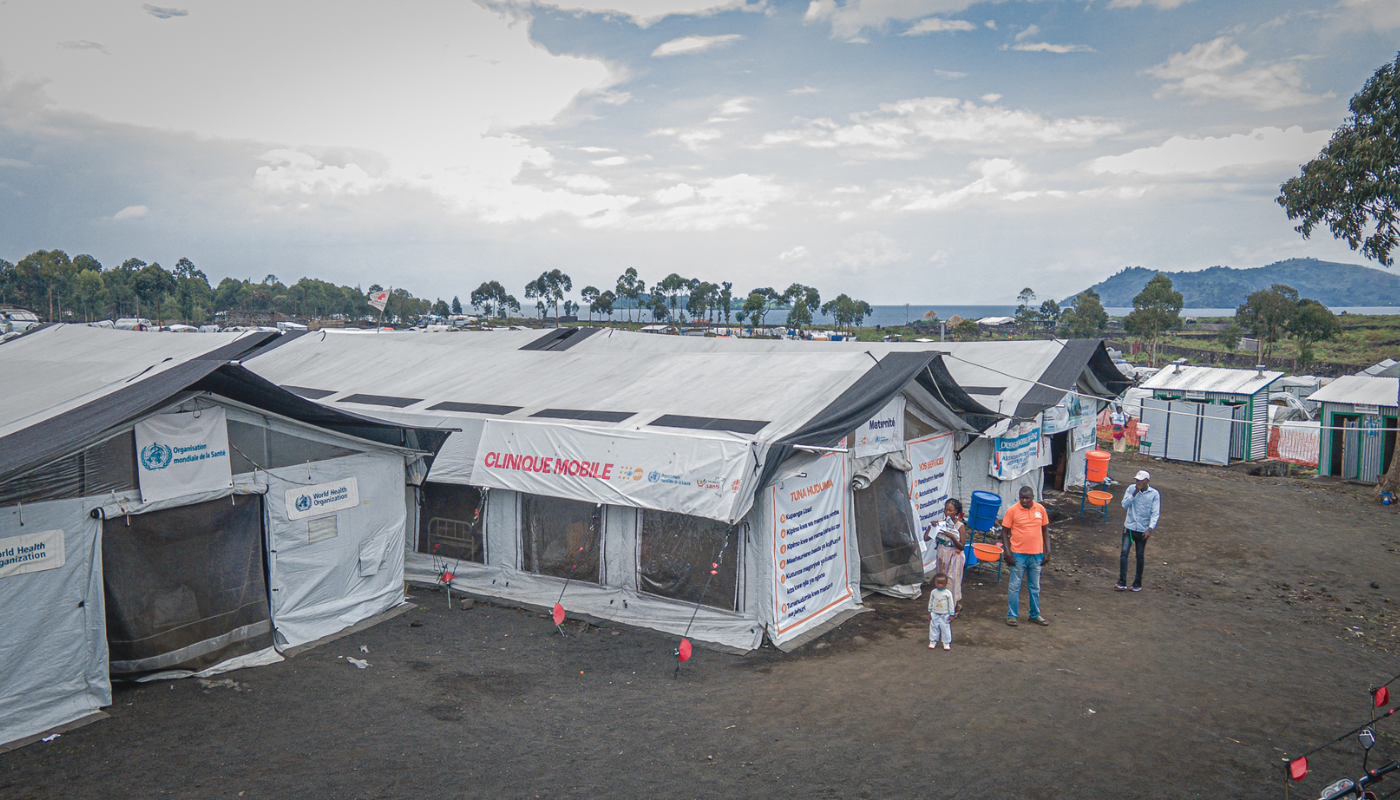
“I was taken care of free of charge at the mobile clinic,” she said, noting that after she gave birth, “UNFPA gave me a kit containing things that helped me a lot – a bucket, soap and clothes – because I didn’t have anywhere to wash my child.”
Through the clinic, Furah also received job training from a teacher known as Mama Antoinette to help her support herself and her child. “I chose to learn how to braid hair,” she said. “As well as the vocational training, there are other things that Mama Antoinette teaches us here, including how to fight against gender-based violence.”
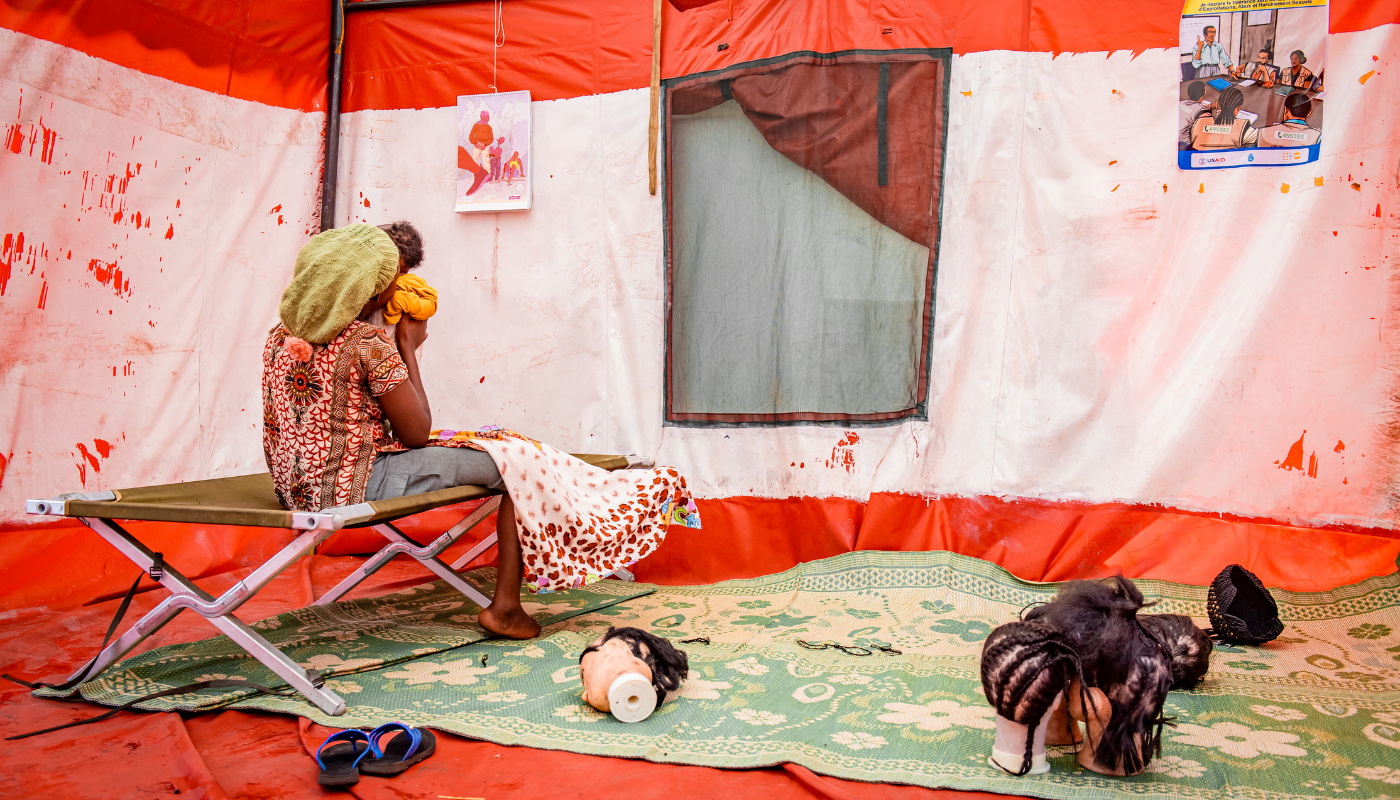
Her goal now, she said, is to save enough money to buy equipment to start her own hair salon. “The material and psychological support we receive from UNFPA and other organizations like ActionAid helps us to get back on our feet and take charge of our lives.”
Furah is one of millions of people who have fled their homes amid a spike in violence in recent years in eastern Democratic Republic of the Congo. The crisis is compounded by climate-related disasters and recurrent disease outbreaks. Sexual violence in the country has escalated sharply this year, with more than 61,000 cases reported in the first six months of the year – 11 per cent higher compared with the same period in 2023.
Across the globe, 122.6 million people were forcibly displaced as of mid-2024. And 1 in 5 refugees or displaced women in humanitarian crises could face sexual violence. Despite the devastating and at times fatal impacts of gender-based violence, addressing it is still not prioritized with urgency. Women’s bodies are collateral in conflict. Here’s what needs to happen now, all over the world:
Shame must change sides: Perpetrators must be held to account, and survivors must have justice. The gap between resolutions and the realities on the ground must be bridged; the use of rape and other sexual violence as a tactic of war must end. There must be accountability for such crimes so that impunity ends, women and girls can get the support and justice they deserve and perpetrators are deterred.
Critical services for survivors of gender-based violence – including emergency medical care, psychosocial support and safe shelters – must be funded and placed at the centre of all humanitarian responses. And displaced women and girls and survivors of gender-based violence must be involved from the outset in response planning, given their expertise on the measures they need.
While UNFPA and its partners are providing essential support to uprooted survivors of gender-based violence around the world, there must be a collective responsibility and increased international coordination and commitments, including adequate funding, to eradicate the scourge of gender-based violence everywhere, for every woman and girl.
To learn more about what you can do to help displaced women and girls and to donate, you can click here.
*Names changed for privacy and protection
